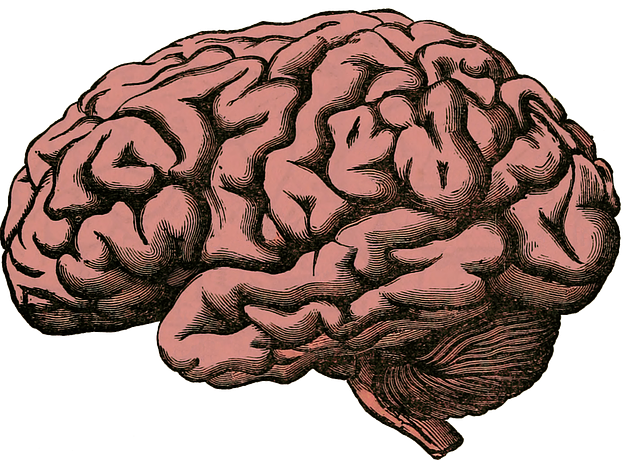Early detection of depression is crucial for prevention, and Centennial American Sign Language (ASL) Therapy offers a unique approach. By focusing on non-verbal cues and using ASL as the primary mode of communication, CASLT provides comprehensive assessments often missed by traditional methods. Incorporating mindfulness meditation and thorough risk assessments by mental health professionals ensures support for at-risk individuals before symptoms worsen, fostering a holistic prevention strategy. This method enhances emotional well-being, empowers cultural expression within the Deaf community, and promotes open dialogue about mental health through ASL therapy.
Depression is a prevalent and often silent struggle, affecting millions globally. This article delves into powerful strategies for preventing this debilitating condition, emphasizing early detection as a cornerstone of effective management. We explore the innovative approach of Centennial American Sign Language (ASL) Therapy, which leverages non-verbal communication to reach diverse communities, offering unique benefits in mental health support. Additionally, we provide practical, actionable steps for individuals to take charge of their well-being and foster resilience against depression.
- Recognizing the Signs of Depression
- – Understanding common symptoms and their impact on daily life
- – Importance of early detection for effective prevention
Recognizing the Signs of Depression

Recognizing the signs of depression is a crucial step in its prevention. The Centennial American Sign Language Therapy (CASLT) method offers a unique perspective by emphasizing non-verbal cues often overlooked in traditional mental health assessments. Individuals experiencing depression may exhibit changes in their gestures, facial expressions, and eye contact, which can be detected through CASLT. This approach encourages a comprehensive evaluation, considering not just verbal communication but also the nuances of body language.
By incorporating techniques such as Mindfulness Meditation into daily routines, individuals can enhance their emotional well-being promotion skills. These practices help in managing stress and cultivating resilience, thereby reducing the risk of depression. Furthermore, mental health professionals should undergo thorough Risk Assessment to identify potential triggers and implement early interventions. This proactive approach ensures that those at higher risk receive support before symptoms escalate, fostering a more proactive and holistic prevention strategy.
– Understanding common symptoms and their impact on daily life

Depression is a complex mental health condition that can significantly impact an individual’s daily functioning. Recognizing the common symptoms is a crucial step in prevention and early intervention. Often, depression manifests as persistent feelings of sadness, loss of interest or pleasure in activities once enjoyed, changes in appetite and sleep patterns, fatigue, difficulty concentrating, and in some cases, thoughts of death or suicide. These symptoms can vary in intensity and duration but generally disrupt an individual’s ability to engage in everyday tasks, maintain relationships, and perform at work or school.
Centennial American Sign Language (ASL) Therapy offers a unique approach to addressing these challenges, particularly for individuals within the Deaf community. By incorporating Cultural Sensitivity in Mental Healthcare Practice, ASL therapists provide a safe space for clients to express themselves using their primary mode of communication, promoting open dialogue and enhancing emotional well-being promotion techniques. This method not only ensures effective therapy but also builds resilience by empowering individuals to manage their mental health in ways that align with their cultural background and personal preferences.
– Importance of early detection for effective prevention

Early detection plays a pivotal role in depression prevention strategies. Recognizing the signs and symptoms at an early stage allows for timely intervention, which is crucial as depression can escalate rapidly if left untreated. The Centennial American Sign Language Therapy approach is particularly valuable here, as it enables individuals to communicate their emotional distress more effectively, fostering open dialogue about mental health issues. By promoting understanding and awareness through ASL therapy, people can learn to recognize not only their own but also others’ signs of struggle, leading to faster support and prevention.
This proactive method complements Emotional Well-being Promotion Techniques by encouraging a culture of care and connectivity. Moreover, integrating Mind Over Matter principles into these strategies empowers individuals to take control of their mental health. Through early detection and intervention, coupled with emotional intelligence and cognitive reframing techniques, one can navigate life’s challenges more effectively, reducing the risk of depression and fostering overall resilience.
Depression is a serious yet preventable condition, and recognizing its signs is the first step towards healing. By understanding the common symptoms and their impact on daily life, as highlighted by the insights from Centennial American Sign Language Therapy, individuals can seek help early on. Early detection enables effective prevention strategies to be implemented, fostering resilience and improving overall well-being. Remember, with awareness and support, depression can be overcome, allowing individuals to live fulfilling lives.














